Antony Blinken has been nominated for the position of US Secretary of State in the incoming Biden administration. In a guest article for IranWire, American scholar Michael Berenbaum explains how his worldview was shaped by the experience of his stepfather, a Holocaust survivor turned international lawyer.
“The heritage of the father’s is a symbol to their sons!”
- Traditional Jewish adage
The new Secretary of State designee, Antony Blinken, was raised for his job. His father Donald Bliken was an American ambassador to Hungary in the nascent years of post-Communist democracy from 1994 to 1998. His stepfather, Samuel Pisar, with whom he began to live at the age of nine in Paris, was an international lawyer with PhDs from both Harvard and the Sorbonne.
Pisar’s friends included presidents and prime ministers, industry titans and government officials from all over the world. His childhood home had been a gathering place for artists and musicians, philosophers and writers from both East and West. Blinken’s stepfather worked to bridge the gap between the then-Soviet Union and the West, at a time when divisions were deep, discourse strained, and serial monologues substituted spontaneous dialogue. Not bad for the sole survivor out of 600 students from his Polish elementary school, and a survivor of four successive concentration camps and two forced labor camps.
Samuel Pisar’s memoir, Of Blood and Hope, was written in the late 1970s at the peak of his distinguished career, when he was finally ready to speak of the past and take up the mantle of survivor. He had been born to an affluent family in the Polish city of Bialystok, where Jews constituted almost one half of the 91,000 residents of the city. His father had established the first taxicab company in the region and his family were well-integrated into the Jewish community and the general community. Established by his grandfather, Pisar Hall was a prominent part of Bialystok’s cultural life.
War shattered the tranquility of ten-year old Sam’s childhood. On September 1, 1939 Germany invaded Poland from the west and 16 days later the Soviet Union invaded from the east, dividing Poland. Bialystok was in the Soviet-occupied territory. Soviet rule brought an end to formal antisemitism, but remained hostile to Judaism. One day, Samuel’s father was tinkering with a car, as he was prone to do, when Soviet commissars came to interrogate him. A man with soiled hands must be a worker, they reasoned. So he escaped the fate of other businessmen. But when the Germans attacked Soviet forces in June 1941, the Jewish of Bialystok, the Pisars among them, were ghettoized. Samuel’s father was taken away one morning and shot, and 12-year-old Samuel was left with his mother and sister.
Polish ghettos were a place of hunger and squalor. For the Jews they constituted a way of life; for their captors, a place to contain them until the infrastructure for their destruction – industrialized killing centers with gassing facilities – was in place. Death camps opened in the winter of 1942 and within 15 months, four in every five of all of the Jews murdered in the Holocaust were already dead. Samuel was deported together with his mother and sister, who were killed on arrival. Thinking quickly, the 13-year-old declared himself to be 18, thus avoiding immediate death.
From there he was sent to the forced labor camps of Majdanek and Blizyn, then to the death camp of Auschwitz, and on to the German concentration camps of Sachsenhausen, Oranienburg and Dachau, before finally arriving at the slave labor complex of the Engelberg Tunnel. At his young age, Samuel could never have survived this alone; another Bialystok boy his age called Ben became his partner in struggle and they were soon joined by a more mature, physically powerful friend called Niko, who served as their protector. The three forged a friendship in the absolute horror of their situation. When one was on the edge of giving up, the others pulled him back from despair; when one found food, the most valuable commodity in the camps, he shared it with the other two. They clung to life by clinging to each other from camp to camp.
Last month, Antony Blinken recalled the story his stepfather told of liberation by US forces.
“The tank resumed its advance [toward the barn], lumbering cautiously toward me. I looked for the hateful swastika, but there wasn’t one... Instead, I made out an unfamiliar emblem. It was the five-pointed white star... I was in front of the tank, waving my arms. The hatch opened. A big black man climbed out, swearing unintelligibly at me... I fell at the black man’s feet, threw my arms around his legs and yelled at the top of my lungs: “God bless America.”
Samuel Pisar could not go home. No one was left alive and there was no one waiting for him, no place to call home. He goes on to describe how he got by through black-marketeering, recovering used coffee beans from the Americans and selling them to desperate Germans. It was a life of adventure for young men who used their survival skills to hustle, profit and prosper. Pisar tells his story with verve and pride, knowing that he would later use these skills and his zest for life creatively, legally and brilliantly.
Pisar’s maternal uncles invited him to Australia. There, the wild boy was tamed and began his education surrounded by family and community. In Australia, he discovered that not only could he survive, but he was gifted. He went to high school and then to the University of Melbourne, where he excelled. Encouraged and coached by his professors, he was admitted to Harvard, where he met other refugees: army veterans who had fought in Europe or the Pacific, who had seen death and were now anxious to get on with their lives. Among them were Henry Kissinger and Zbigniew Brzezinski.
Pisar began his career as a UN diplomat in Paris. Like many of his generation he was attracted to the Kennedy Administration and after a period in government, began working as an international lawyer in Paris and New York. In time he became an advocate of internationalism and the author of a well-received book entitled Coexistence and Commerce. Having lived under Soviet rule, he was unimpressed by Soviet might and saw commerce as the key to coexistence and an arms race bordering on madness.
If Samuel Pisar represents the aspirations of the past, his stepson reared in his home, Antony Blinken, represents the future. Diplomacy comes to Blinken naturally, inherited from his stepfather as well as his own father and mother. He has been around diplomats and world leaders since the age of nine. Before he studied the craft or put it into practice in important government assignments, he saw it around his family table. He will need no learning curve.
He understands evil. No one who grew up in a survivor’s home cannot understand human cruelty and indecency, the perils of totalitarianism and the dangers of authoritarianism. No one needs a reminder of the importance of human rights, human dignity or human decency. Antony Blinken’s stepmother, Vera Blinken, had fled Communist Hungary after the crackdown against freedom in 1956. He lived with people who knew what it was like to be enslaved, who never took freedom for granted and who cherished its blessings.
He will cherish Europe even as he moves to the Pacific Rim. He lived in Europe as a child and his French is native. His feels at home in European capitals, in their cafes, in their museums and on their streets.
He inherited a globalist perspective from his parents and stepparents. They saw the world as whole, and the United States as indispensable to a stable world, but not if it chose isolation or “America first”. Blinken understands soft power and not just military power. A musician, he has a sense of the power of music, art, science and culture. Pisar taught him economic cooperation, human dialogue, a need for mutuality, cooperation and collaboration even with one’s erstwhile adversaries.
He has been trained from childhood onward to think outside the box. Blinken grew up in a home that advocated equality, compassion and human dignity. He understands the importance of the United States to the world and the importance of American ideals. His stepfather and his stepmother, so too his grandparents, who went to America as immigrants to enjoy its fruits and its freedom. This he will not forget.
Most importantly, Jo Biden’s nominee for secretary of state will take Holocaust denial personally. Iran’s supreme leader denies the Holocaust many times in the past. He has called the tragedy “a myth” and “a fabrication.” Nothing can be more insulting to the memory of Samuel Pisar’s parents, David and Helena Suchowolski Pisar, and his younger sister, Frieda, and six-million Jews who died during the Holocaust. When Khamenei, white supremacists, neo-Nazis and Nazis proclaim that the Holocaust is a hoax, Antony Blinken will remember the numbers branded on his stepfather’s arm and Samuel Pisar’s description of his harrowing youth. Auschwitz death camp is not an abstraction for Blinken. Majdanek extermination camp is more than a place on a map. They are living reminders of the destructive power of bigotry and the horrifying legacy of an authoritarian regime and its allies.
visit the accountability section
In this section of Iran Wire, you can contact the officials and launch your campaign for various problems




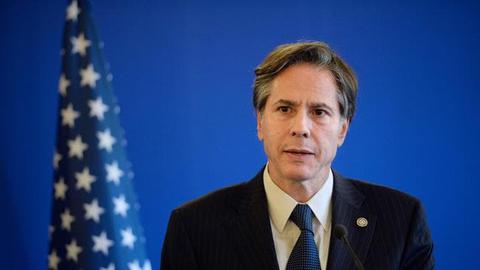
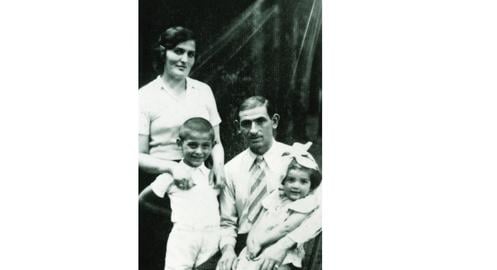
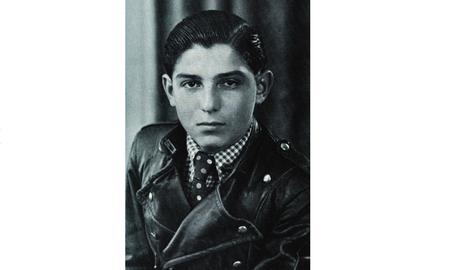

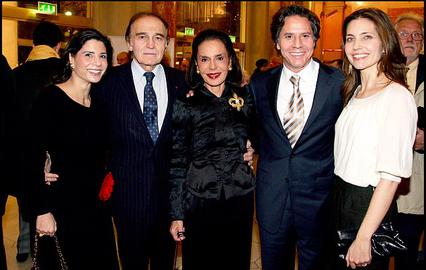




















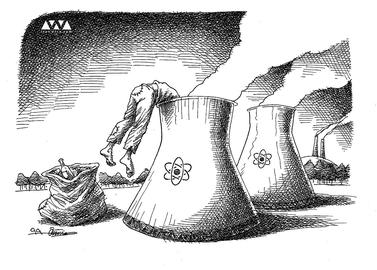
comments